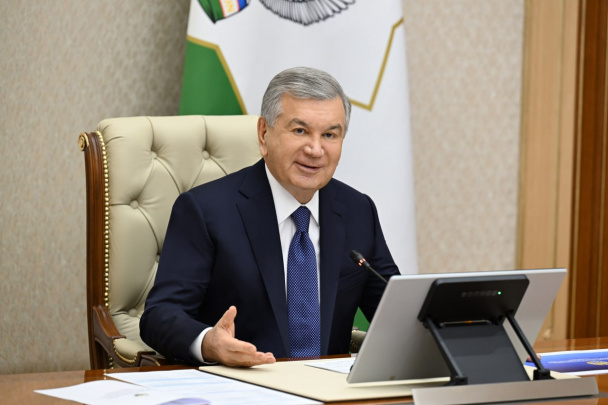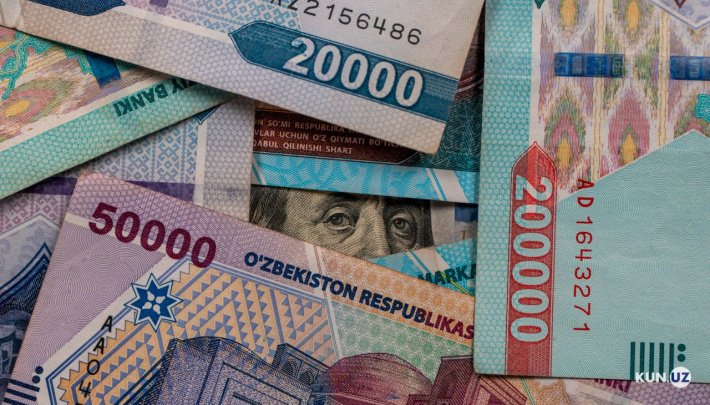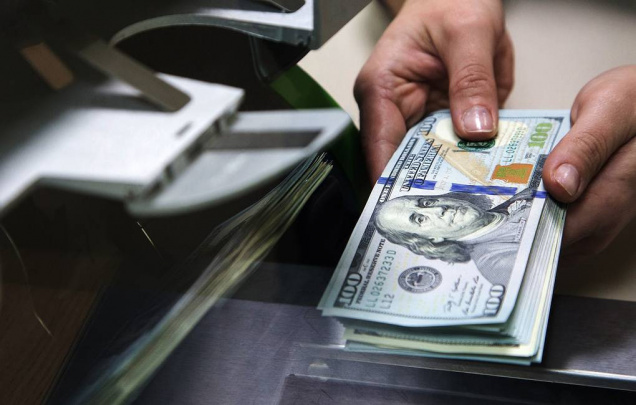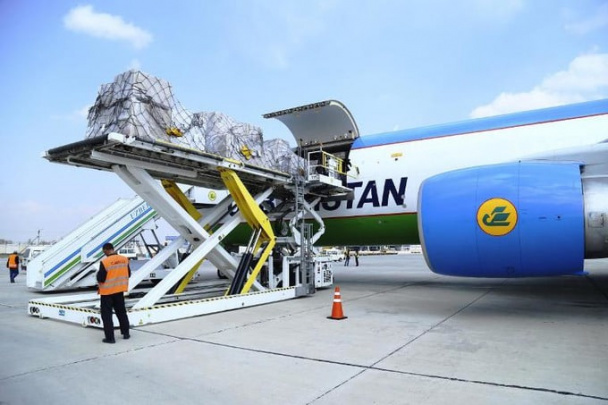Uzbekistan’s accession to WTO: Chief negotiator Azizbek Urunov details the republic’s goals
Uzbekistan has announced its intention to join the World Trade Organization within two years and has taken significant steps towards this goal. Kun.uz has conducted an interview with the President's representative on WTO issues, Azizbek Urunov, discussing the progress of negotiations, ongoing protectionism in industries such as the automotive and electrical sectors, and other related questions.
– Uzbekistan has announced the timeline for joining the WTO. Are you confident that the membership process will be completed by this deadline?
– The issue of joining the WTO has been on the agenda since the start of extensive reforms. Until today, reforms in our current economy and the resolution of necessary problems have been addressed. Since last year, we have developed medium and long-term development programs and begun their implementation. From this perspective, we have prepared our economy and reforms for WTO membership. Indeed, today our state leader, government, and people fully support our accession to the WTO.
I believe we have come very close to this process and are ready for membership. This will be an integral part of our reforms and will open a new chapter for our economic development and the welfare of our people, as opportunities will expand.
On May 24, at the working group meeting, we announced our goal to join the WTO by 2026. There are two reasons for this: first, to support this process, as our president is backing this issue, and our internal reforms have become more active to meet WTO requirements.
Second, we announced this deadline to signal member states to expedite the process. When member states see the candidate's actions, they will respond accordingly. As you know, many documents need to be submitted for WTO membership, and the time taken to review these documents depends on the member states. From this perspective, they will also actively participate in the process to complete it.
– On June 3, the president signed a decree that annulled exclusive rights granted to several monopolists. In your opinion, what are the key aspects of this document?
– A very important decree has been signed. This is one of the historical decrees for WTO membership. For many years, the lack of currency convertibility has been cited as the reason for not joining the WTO. In fact, this was not the case. Market mechanisms need to work in the WTO. From this perspective, for many years, state trading companies had many exclusive rights. Until 2017, we even had a list of specific companies authorized to export fruits and vegetables. Only they had the right to export. Since 2017, following the policy of liberalization in foreign trade, we have prepared ourselves from many perspectives.
Considering the current process of joining the WTO, we are in a very active phase. Member states expected us to make changes that did not align with WTO principles. When the WTO Director-General came to Uzbekistan, she said, "I read this decree on the plane, and I couldn't have received a better gift. This document shows Uzbekistan's firm step towards WTO membership."
Why is this decree important? Firstly, it is crucial to create equal conditions for economic participants. I think it is the next step in the reforms carried out in Uzbekistan over the past seven years. We did not adopt this decree solely for WTO membership. It was time to transition state enterprises to market mechanisms. This will increase their competitiveness and enable them to operate based on market principles. Some skeptics might think that these enterprises will collapse, but if we want to rapidly develop our economy, we need to enhance their competitiveness. If we do not place them in a market environment, it will be very difficult to increase their competitiveness.
The decree covers complex issues. When preparing this decree, several WTO agreements were taken into account. There are agreements on the exclusive rights of state enterprises and trade-related investment measures, which are also reflected in the decree. It is prohibited to impose strict requirements related to localization, import, or export on investors. To reflect these requirements in national legislation, relevant agencies have been assigned tasks. Based on these requirements, they need to inventory and adapt legislative norms.
– The automotive sector, which many are waiting for, was not included in the decree. How many years has the government asked the WTO to gradually abolish privileges for this sector?
– This is a process related to bilateral negotiations. It cannot be disclosed. Because each country negotiates with you on areas of its interest. If we disclose this issue, members will know our position, which will affect the negotiation process.
In bilateral negotiations, market access conditions are agreed upon. For example, Uzbekistan may negotiate conditions for importing phones, drinking water, automobiles, textiles, etc. If we say our position on the automotive sector, we will have revealed our position to them. Bilateral negotiations with each country are confidential. One country cannot disclose the conditions agreed upon with Uzbekistan to another country. This is a WTO requirement. If we agree on something with the European Union, they do not have the right to disclose this information to the USA, India, or China. We can disclose negotiations with each country, but that would reveal our position.
For example, if we agree to zero import duties on water, ten countries might be asking for this from us. Once these ten countries know that it is zero, they will not negotiate with us on water but will enter into negotiations on another product that interests them because they know the water issue is resolved.
Regarding the automotive sector, last year, we worked with all sector organizations, ministries, and agencies to develop our position on market access for goods and services over two months. Negotiations are being conducted based on this position. Of course, regarding WTO membership, member states will stand firm on this matter even if we do not want them to. We also need to liberalize the market in this direction. Comparing customs duties before 2017 and today, duties have been reduced by up to three times. Analyzing the situation, average duties ranged from 110% to 180%. If you wanted to buy a $100,000 car, you had to pay customs duties ranging from $110,000 to $180,000. Why? Because there was an import duty, an additional fee based on engine volume, and a very high excise tax. Since 2021, we have unified excise taxes, abolished the excise tax on car imports, and further liberalized import duties on new cars since last year. From this perspective, the liberalization process is being carried out gradually.
In WTO membership, the candidate country develops its position to leave itself with more opportunities. Each member state tries to open the candidate country's market to itself. What does this mean? During negotiations with WTO members, looking at some import duties indicates a clear position. Each state implements its industrial policy based on 3–5-year sector programs. Some support might be provided for the sector to stand on its own. It should be remembered that the WTO does not allow for the protection of a particular sector for 20-30 years. Economic opportunities and comparative advantages guide its economic and industrial policy. From this perspective, it does not allow for unnecessary protection.
– On June 4, WTO Director-General Ngozi Okonjo-Iweala visited Tashkent. How will her visit benefit Uzbekistan's membership in the organization?
– This was Mrs. Ngozi Okonjo-Iweala's first visit to a non-member state. This is a significant signal to member states, as the WTO Director-General is accountable to member states. Secondly, considering Mrs. Ngozi's personal qualities, she is highly respected worldwide. Her visit to Uzbekistan shows how seriously the country is approaching membership. This is a significant signal to member states. During her meeting with the state leader, major issues were discussed. From this perspective, the Director-General will discuss this issue with the official representatives of member states, which will speed up the process.
– What role will the WTO Director-General play in our membership?
– Her role is very important. Member states decide Uzbekistan's entry into the WTO. This is stated in the organization's charter. The Director-General's role in shaping the WTO agenda is invaluable. We expressed our intention to become a member by the fourth ministerial meeting in Cameroon in 2026. The Director-General will put the issue of concluding negotiations with Uzbekistan on the agenda of each member state. She can encourage member states to actively work and complete the process.
– Since the beginning of the year, several controversial import regulations have come into effect, leading to some cases. The import of electric vehicles, cars, household appliances, and elevators has become more complicated. As Uzbekistan's chief negotiator with the WTO, what is your stance on these barriers?
– What is the main requirement of the WTO? To create equal market conditions for imported and domestically produced goods. The issues you raised mainly concern non-tariff measures. If non-tariff measures are applied equally to both imported and domestic products, they are not fundamentally against WTO requirements.
You mentioned the case of electric vehicles, which is very interesting. This is not a measure that significantly restricts the entry of electric vehicles into our domestic market. This measure is specific to BYD. Within the global supply chain, BYD can resolve this issue itself. It may be seen as a more effective measure under the conditions for investing in Uzbekistan discussed with our relevant ministries and agencies.
Secondly, BYD is not the only electric vehicle manufacturer; other manufacturers are not subject to this measure. There are many other companies in China, such as Li and Zeekr. This measure does not apply to them. For example, it does not apply to electric vehicle manufacturers from the USA, UAE, or other Chinese manufacturers.
– But the issue is that BYD recently offered affordable cars, which expanded the choice for Uzbeks. Due to this aspect, restrictions on BYD imports have faced criticism.
– In some respects, I agree with your point, not just from a price perspective but also from a quality perspective, there are more choices regarding these products. From a global perspective, the market is quick to adapt to conditions. I believe other companies will also find their customers as an alternative to BYD. BYD wants to invest in Uzbekistan, and this has been discussed at the investor's request, so what I want to say is that this is a solvable issue from a global standpoint.
– Let's say the case related to BYD happened at the investor's request, but granting additional privileges to local household appliance manufacturers or suddenly stopping the import of elevators is something within the government's control. Such decisions impoverish consumers. Isn't this position of supporting domestic producers more about the time remaining before joining the WTO?
– With the decision No. 181 adopted last year, it was established that legislative initiatives contrary to WTO rules would not be accepted. There is an inter-agency commission working on WTO accession. We examine the decisions we make for compliance with WTO requirements. The situations that are considered trade restrictions are noted in the WTO agreement on trade and tariffs. Many countries use these measures when some industrial sectors are sufficiently damaged, allowing for some restrictions. However, once a member of the WTO, unrestricted trade restrictions become a difficult process.
According to the agreement that came into force in 1995, countries agreed to use tariff measures in regulating trade and to avoid non-tariff measures as much as possible. Over the past 25-30 years, while many countries have liberalized tariffs, many have strengthened non-tariff measures. Non-tariff measures include technical regulations, sanitary, and phytosanitary measures.
For example, the European Union has granted Uzbekistan GSP+ trade status. What does this mean? It means we can export 6200 products to the European Union without customs duties. But if we look deeper, while import duties might be zero, considering requirements like certification, our ability to export to Europe is very limited. Today, if we do not adapt textile products, fruits, and vegetables to European Union standards, we will not be able to export. Taking textiles as an example, if we do not meet certification requirements and export based on their standards, we will not have export opportunities. If we want to export a certain product, they have a registration process, from production to certification.
You mentioned elevators and electrical products; we cannot change everything tomorrow with a system that leads to unfair trade. The WTO has its requirements, mechanisms, and judicial system that reviews these issues. It is possible to use mechanisms to prevent or prohibit such measures.
Related News

11:41
Uzbekistan to dissolve UzTest and privatize certification services

19:06 / 12.02.2026
Uzbekistan’s currency gains nearly 7% against dollar, easing external debt payments

16:06 / 11.02.2026
Export revenues and remittances drive currency market surplus in Uzbekistan

16:05 / 11.02.2026




